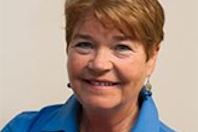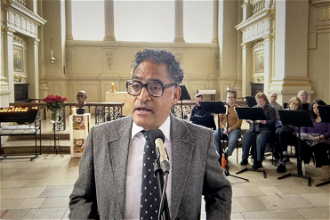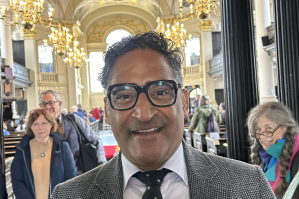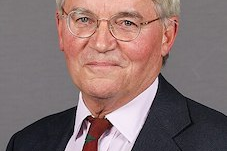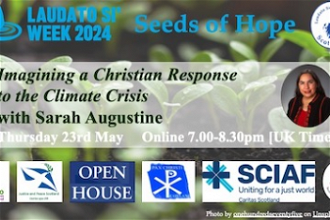Pope at Canonisation of Romero, Paul VI, and five more saints who lived God's Word with passion & video
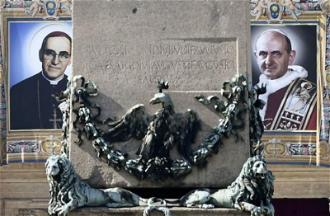
Banners of St Oscar Romero, St Paul VI
Source: Vatican Media/ICN
Pope Francis declared Pope Paul VI and Archbishop Oscar Romero saints this morning, together with five other lesser-known Blesseds: Francesco Spinelli, Vincenzo Romano, Maria Caterina Kasper, Nazaria Ignazia of Saint Teresa of Jesus, and Nunzio Sulprizio.
Under a clear blue sky, addressing tens of thousands of people who had travelled from all over the world to attend the Canonisation Mass in St Peter's Square, the Holy Father said the saints that Pope Francis canonized today, "in different contexts, put today's Word into practice in their lives, without lukewarmness, without calculation, with the passion to risk everything and to leave it all behind. May the Lord help us to imitate their example."
The new saints
The blessed offered to the devotion of the whole Church come from "different contexts" - Pope Paul VI (Giovanni Battista Montini, 1897 -1978), who led the Church after Vatican Council II; Mgr Oscar Arnulfo Romero, archbishop of San Salvador (1917-1980), killed while celebrating Mass; Francesco Spinelli (1853-1913), Milanese diocesan priest, founder of the Institute of the Adorers of the Blessed Sacrament and of the Sacramentine of Bergamo; Vincenzo Romano (1751-1831), diocesan priest of Torre del Greco (Naples), famous for his commitment to evangelization towards the young, the poor, criminals; Maria Caterina Kasper (1820-1898), virgin, German, foundress of the Institute of the Poor Servants of Jesus Christ, who lived an apostolate for the poor, the elderly, children and orphans; Nazaria Ignazia of Saint Teresa of Jesus (born: Nazaria Ignazia March Mesa, 1889-1943), virgin, foundress of the Congregation of the Misioneras Cruzadas de la Iglesia. Of Spanish origin, she also worked in Argentina for the promotion of women and for the service to the poor; Nunzio Sulprizio (1817-1836), a young worker in love with Jesus, who died at the age of only 19, considered the protector of the disabled and victims of labor.
In his homily, Francis mentioned in particular Paul VI, who "spent his life for Christ's Gospel, crossing new boundaries and becoming its witness in proclamation and in dialogue, a prophet of a Church turned outwards, looking to those far away and taking care of the poor. Even in the midst of tiredness and misunderstanding, Paul VI bore witness in a passionate way to the beauty and the joy of following Christ totally. Today he still urges us, together with the Council whose wise helmsman he was, to live our common vocation: the universal call to holiness".
The Pope also had some words also for the martyr, Abp. Romero: "who left the security of the world, even his own safety, in order to give his life according to the Gospel, close to the poor and to his people, with a heart drawn to Jesus and his brothers and sisters".
Breaking from the prepared text, he also dedicated some words to Nunzio Sulprizio, "our young, courageous, humble saint, who knew how to love Jesus with his whole self".
The homily was an invitation to follow the same path of the saints, taking as a starting point today's gospel (Mark 10, 17-30), that of the rich young man who refuses to follow Jesus.
The young man "is seeking life without end, life in its fullness: who of us would not want this? Yet we notice that he asks for it as an inheritance, as a good to be obtained, to be won by his own efforts.".
Instead, "Jesus proposes to him a story of love. He asks him to pass from the observance of laws to the gift of self, from doing for oneself to being with God. And the Lord suggests to the man a life that cuts to the quick: "Sell what you have and give to the poor…and come, follow me" "(V 21).
"Jesus is radical. He gives all and he asks all: he gives a love that is total and asks for an undivided heart. Even today he gives himself to us as the living bread; can we give him crumbs in exchange? We cannot respond to him, who made himself our servant even going to the cross for us, only by observing some of the commandments. We cannot give him, who offers us eternal life, some odd moment of time. Jesus is not content with a "percentage of love": we cannot love him twenty or fifty or sixty percent. It is either all or nothing".
The Pope then proposed an examination of conscience: "Let us ask for the grace always to leave things behind for love of the Lord: to leave behind wealth, the yearning for status and power, structures that are no longer adequate for proclaiming the Gospel, those weights that slow down our mission, the strings that tie us to the world. Without a leap forward in love, our life and our Church become sick from "complacency and self-indulgence" (Evangelii Gaudium, 95): we find joy in some fleeting pleasure, we close ourselves off in useless gossip, we settle into the monotony of a Christian life without momentum, where a little narcissism covers over the sadness of remaining unfulfilled".
Outside this momentum there is only attachment to riches and sadness. He said "if our hearts are crowded with goods, there will not be room for the Lord, who will become just one thing among the others.For this reason, wealth is dangerous and - says Jesus - even makes one's salvation difficult. Not because God is stern, no! The problem is on our part: our having too much, our wanting too muchsuffocates our hearts and makes us incapable of loving".
"Sadness is the proof of unfulfilled love, the sign of a lukewarm heart. On the other hand, a heart unburdened by possessions, that freely loves the Lord, always spreads joy, that joy for which there is so much need today."
Before the Angelus prayer, at the conclusion of the Mass, Francis greeted all those present, in particular Rowan Williams and the delegation of the Archbishop of Canterbury. Among the political personalities, he greeted "Queen Sofia (of Spain), the President of the Italian Republic, the presidents of Chile, El Salvador and Panama". The ceremony was also attended by the vice-president of the Republic of China (Taiwan), the Catholic Chen Chien-jen, who also had a personal audience with the pontiff.
The full text of his prepared homily follows:
The second reading tells us that "the word of God is living and active, sharper than any two-edged sword (Heb 4:12). It really is: God's word is not merely a set of truths or an edifying spiritual account; no - it is a living word that touches our lives, that transforms our lives. There, Jesus in person, the living Word of God, speaks to our hearts.
The Gospel, in particular, invites us to an encounter with the Lord, after the example of the "man" who "ran up to him" (cf Mk 10:17). We can recognise ourselves in that man, whose name the text does not give, as if to suggest that he could represent each one of us. He asks Jesus how "to inherit eternal life" (v 17). He is seeking life without end, life in its fullness: who of us would not want this? Yet we notice that he asks for it as an inheritance, as a good to be obtained, to be won by his own efforts. In fact, in order to possess this good, he has observed the commandments from his youth and to achieve this he is prepared to follow others; and so he asks: "What must I do to have eternal life?"
Jesus's answer catches him off guard. The Lord looks upon him and loves him (cf v 21). Jesus changes the perspective: from commandments observed in order to obtain a reward, to a free and total love. That man was speaking in terms of supply and demand, Jesus proposes to him a story of love. He asks him to pass from the observance of laws to the gift of self, from doing for oneself to being with God. And the Lord suggests to the man a life that cuts to the quick: "Sell what you have and give to the poor…and come, follow me" (v. 21). To you, too, Jesus says: "Come, follow me!" Come: do not stand still, because it is not enough not to do evil in order to be with Jesus. Follow me: do not walk behind Jesus only when you want to, but seek him out every day; do not be content to keep the commandments, to give a little alms and say a few prayers: find in Him the God who always loves you; seek in Jesus the God who is the meaning of your life, the God who gives you the strength to give of yourself.
Again Jesus says: "Sell what you have and give to the poor." The Lord does not discuss theories of poverty and wealth, but goes directly to life. He asks you to leave behind what weighs down your heart, to empty yourself of goods in order to make room for him, the only good. We cannot truly follow Jesus when we are laden down with things. Because if our hearts are crowded with goods, there will not be room for the Lord, who will become just one thing among the others. For this reason, wealth is dangerous and - says Jesus - even makes one's salvation difficult. Not because God is stern, no! The problem is on our part: our having too much, our wanting too much suffocates our hearts and makes us incapable of loving. Therefore, Saint Paul writes that "the love of money is the root of all evils" (1 Tim 6:10). We see this where money is at the centre, there is no room for God nor for man.
Jesus is radical. He gives all and he asks all: he gives a love that is total and asks for an undivided heart. Even today he gives himself to us as the living bread; can we give him crumbs in exchange? We cannot respond to him, who made himself our servant even going to the cross for us, only by observing some of the commandments. We cannot give him, who offers us eternal life, some odd moment of time. Jesus is not content with a "percentage of love" - we cannot love him twenty or fifty or sixty percent. It is either all or nothing.
Dear brothers and sisters, our heart is like a magnet: it lets itself be attracted by love, but it can cling to one master only and it must choose: either it will love God or it will love the world's treasure (cf. Mt 6:24); either it will live for love or it will live for itself (cf. Mk 8:35). Let us ask ourselves where we are in our story of love with God. Do we content ourselves with a few commandments or do we follow Jesus as lovers, really prepared to leave behind something for him? Jesus asks each of us and all of us as the Church journeying forward: are we a Church that only preaches good commandments or a Church that is a spouse, that launches herself forward in love for her Lord? Do we truly follow him or do we revert to the ways of the world, like that man in the Gospel? In a word, is Jesus enough for us or do we look for many worldly securities? Let us ask for the grace always to leave things behind for love of the Lord: to leave behind wealth, the yearning for status and power, structures that are no longer adequate for proclaiming the Gospel, those weights that slow down our mission, the strings that tie us to the world. Without a leap forward in love, our life and our Church become sick from "complacency and self-indulgence" (Evangelii Gaudium, 95): we find joy in some fleeting pleasure, we close ourselves off in useless gossip, we settle into the monotony of a Christian life without momentum, where a little narcissism covers over the sadness of remaining unfulfilled.
This is how it was for the man, who - the Gospel tells us - 'went away sorrowful' (v 22). He was tied down to regulations of the law and to his many possessions; he had not given over his heart. Even though he had encountered Jesus and received his loving gaze, the man went away sad. Sadness is the proof of unfulfilled love, the sign of a lukewarm heart. On the other hand, a heart unburdened by possessions, that freely loves the Lord, always spreads joy, that joy for which there is so much need today. Pope Saint Paul VI wrote: "It is indeed in the midst of their distress that our fellow men need to know joy, to hear its song" (Gaudete in Domino, I). Today Jesus invites us to return to the source of joy, which is the encounter with him, the courageous choice to risk everything to follow him, the satisfaction of leaving something behind in order to embrace his way. The saints have travelled this path.
Watch the Canonisation Mass on Youtube: www.youtube.com/watch?v=ug5amN7XWVA&feature=youtu.be



